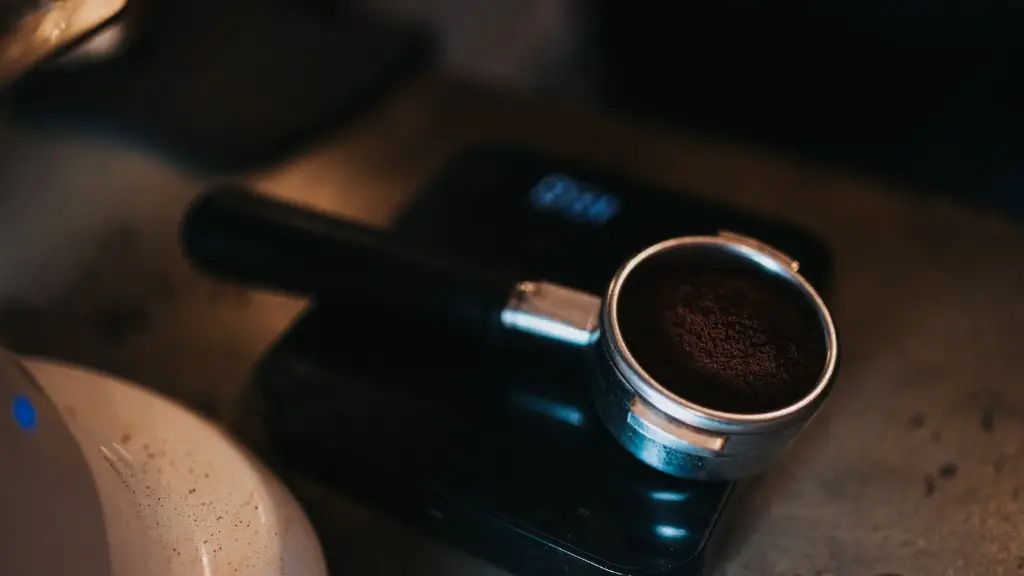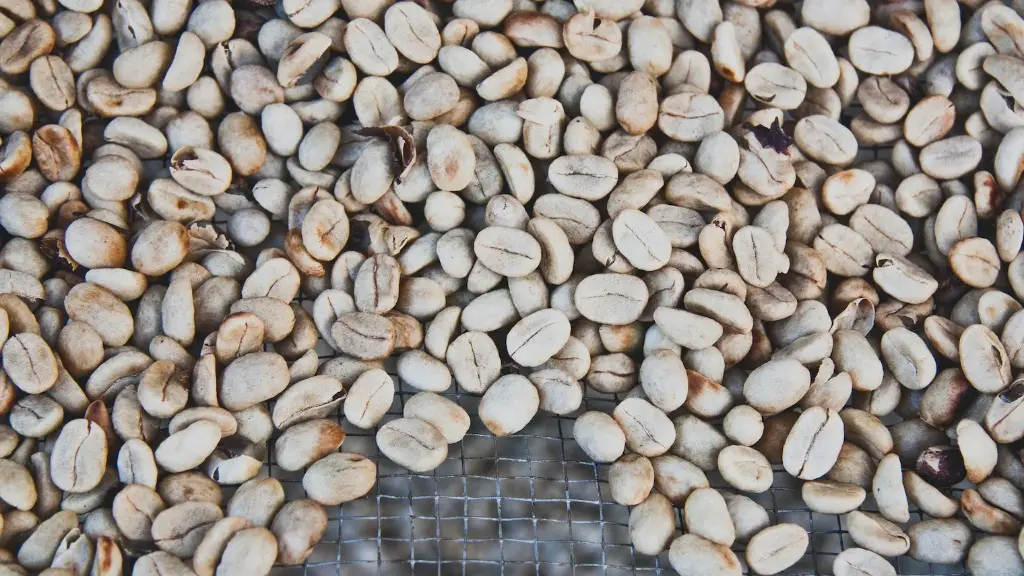After a wisdom teeth extraction, it can be tempting to hit the coffee cart right away. However, drinking coffee or other potentially hot or caffeinated beverages too soon can have negative implications for your healing. It is important to understand when it is appropriate to resume your morning coffee and why it is beneficial to wait.
It is recommended to wait at least 24 hours after a wisdom teeth extraction before consuming hot or caffeinated beverages. Coffee has compounds that can further aggravate the extraction site. Specifically, the acidity of coffee can damage the protective scab and interrupt the natural healing process that needs to occur in order for the extraction site to heal properly. This is why it is important to allow the extraction site enough time to heal before introducing any substances that could be damaging to your healing.
It is also essential to understand the importance of proper oral care after an extraction. According to Dr. Charles L. Boyd, an Oral and Maxillofacial Surgeon, “Proper oral care and eating habits after wisdom teeth removal will help the healing process go as smoothly as possible. After surgery, patients should avoid actively swishing the mouth with liquid, eating crunchy or hard food, using a straw or toothbrush, and spitting forcefully.” Proper healing habits are essential in ensuring that the extraction site heals in the correct manner.
Post-operative instructions given by your dental team offer great guidance on what to do and when to avoid various activities after an extraction. This can help to ensure that the healing process occurs quickly and properly. After surgery, it is generally recommended to avoid any type of strenuous physical activity, hot liquids, and smoking for at least 24 hours. This allows for the clotting to occur at the extraction site and for the wound to heal properly.
It is best to wait to drink coffee or any other type of hot or caffeinated beverage until after the 24 hour post-operative period. This is to ensure that the extraction site remains undamaged and the healing process goes smoothly. Caffeine can also affect the way your body absorbs certain pain medications given after the extraction, so it’s best to avoid or limit caffeine until the extraction site is fully healed and the medication has been processed by the body.
The main takeaway when it comes to coffee and wisdom teeth removal is to wait. Follow your dental team’s post-operative instructions closely and make sure to wait at least 24 hours before drinking coffee or any other type of hot or caffeinated beverage. This will help to ensure that the extraction site heals properly and quickly.
What are the Risks of Drinking Coffee Too Soon
Drinking coffee or any other type of hot or caffeinated beverage too soon after an extraction can result in negative implications for your healing. Consuming coffee before the extraction site has had enough time to heal properly can result in increased bleeding, swelling, inflammation, and pain at the extraction site. The acidity of coffee can also damage the protective scab covering the extraction site and slow down the healing process overall.
In addition to potential complications related to the healing process, drinking coffee prior to the 24 hour post-operative period can also put the patient at risk for dehydration. Caffeine is a diuretic that encourages the body to expel excess water. This can further lead to an imbalance in fluids in the body, which can have further implications for the healing process.
The most important thing to remember when it comes to drinking coffee after an extraction is to wait. Wait at least 24 hours before consuming coffee or any other type of hot or caffeinated beverage. This will help to ensure that the extraction site heals in the proper manner and that risks related to dehydration or infection are minimized.
Meeting Caffeine Needs Without Coffee
After an extraction, it is important to still receive the nutrients needed to help facilitate the healing process. Coffee is a great source of caffeine, however, it is important to look for alternative ways to meet your caffeine needs without jeopardizing the healing process. Tea is a great alternative that is also packed with nutrients, such as antioxidants, that can help to speed up the healing process.
Tea is typically much lower in caffeine than coffee so it can be consumed earlier in the healing process with less risk of hindering the healing process. Additionally, there are many naturally caffeine free drinks such as herbal and fruit teas that can help to meet your caffeine needs without the risk of inhibiting the healing process.
It is important to keep in mind that caffeine is not essential for the healing process. There are many other nutrients and vitamins that can be consumed to help speed up the healing process. Eating a healthy, balanced diet is the best way to get all of the nutrients needed to ensure proper healing after an extraction.
It is also important to stay well hydrated and get plenty of rest. Staying hydrated helps to keep the mouth clean and flush out any bacteria, which is important for proper cleaning of the extraction site. Getting plenty of rest helps to manage any pain resulting from the extraction and gives your body the time it needs to relax and heal.
What to Eat After Wisdom Teeth Removal
After an extraction, it is important to eat soft foods and follow your dental team’s post-operative instructions. Soft foods, such as applesauce, mashed potatoes, soup, and smoothies, help to ensure that the extraction site is not traumatized and that the healing process is not hindered. Additionally, these types of foods offer the nutrients and vitamins needed to help facilitate the healing process.
Frozen foods, such as frozen yogurt or ice cream, can also be beneficial to the healing process. These types of foods provide an excellent way to soothe any pain or swelling resulting from the extraction. Additionally, they can be a great source of protein and other nutrients needed to help facilitate the healing process.
It is important to keep in mind that the post-operative instructions should be followed closely and should be tailored to each individual patient. This will enable the patient to have the best possible outcome after surgery.
What to Avoid After Wisdom Teeth Removal
After an extraction, it is important to avoid certain activities that could hinder the healing process. Specifically, it is important to avoid the following: strenuous physical activity, hot liquids, crunchy or hard foods, and smoking. These activities can make the extraction site harder to heal in the correct manner.
It is also important to avoid using a straw or toothbrush on the extraction site as this could cause further disruption to the healing process. Additionally, it is important to avoid actively swishing the mouth with liquid and spitting forcefully as these activities could cause further damage to the extraction site.
It is important to follow your dental team’s post-operative instructions closely. This will ensure that you have the best possible outcome after surgery and that the healing process occurs quickly and properly.
How Long Does It Take to Fully Heal After Wisdom Teeth Removal
The healing process varies from person to person and is based on the individual’s post-operative instructions. Generally speaking, it is recommended to allow at least one to two weeks for the extraction site to heal properly. The swelling and pain should subside after the first few days post-operation, however, it is important to allow the extraction site sufficient time to heal in order to ensure proper healing without any further complication.
It is important to keep in mind that the healing process is not complete until all of the swelling and tenderness have subsided and the extraction site is fully healed. It can take up to several weeks for the extraction site to heal completely, so it is important to be patient and follow your dental team’s post-operative instructions closely.
It is also important to practice proper oral hygiene habits. This includes brushing twice a day, flossing daily, rinsing with an antibacterial mouthwash, and visiting your dentist for regular check-ups. Proper oral hygiene habits can help to ensure that the healing process occurs quickly and properly.





